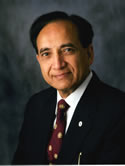| Abstract: |
Background: A risk-adapted approach to management of thyroid cancer requires risk estimates that change over time based on response to therapy and the course of the disease. The objective of this study was to validate the American Thyroid Association (ATA) risk of recurrence staging system and determine if an assessment of response to therapy during the first 2 years of follow-up can modify these initial risk estimates. Methods: This retrospective review identified 588 adult follicular cell-derived thyroid cancer patients followed for a median of 7 years (range 1-15 years) after total thyroidectomy and radioactive iodine remnant ablation. Patients were stratified according to ATA risk categories (low, intermediate, or high) as part of initial staging. Clinical data obtained during the first 2 years of follow-up (suppressed thyroglobulin [Tg], stimulated Tg, and imaging studies) were used to re-stage each patient based on response to initial therapy (excellent, acceptable, or incomplete). Clinical outcomes predicted by initial ATA risk categories were compared with revised risk estimates obtained after response to therapy variables were used to modify the initial ATA risk estimates. Results: Persistent structural disease or recurrence was identified in 3% of the low-risk, 21% of the intermediate-risk, and 68% of the high-risk patients (p<0.001). Re-stratification during the first 2 years of follow-up reduced the likelihood of finding persistent structural disease or recurrence to 2% in low-risk, 2% in intermediate-risk, and 14% in high-risk patients, demonstrating an excellent response to therapy (stimulated Tg<1ng/mL without structural evidence of disease). Conversely, an incomplete response to initial therapy (suppressed Tg > 1ng/mL, stimulated Tg > 10ng/mL, rising Tg values, or structural disease identification within the first 2 years of follow-up) increased the likelihood of persistent structural disease or recurrence to 13% in low-risk, 41% in intermediate-risk, and 79% in high-risk patients. Conclusions: Our data confirm that the newly proposed ATA recurrence staging system effectively predicts the risk of recurrence and persistent disease. Further, these initial ATA risk estimates can be significantly refined based on the assessment of response to initial therapy, thereby providing a dynamic risk assessment that can be used to more effectively tailor ongoing follow-up recommendations. © 2010, Mary Ann Liebert, Inc. |










